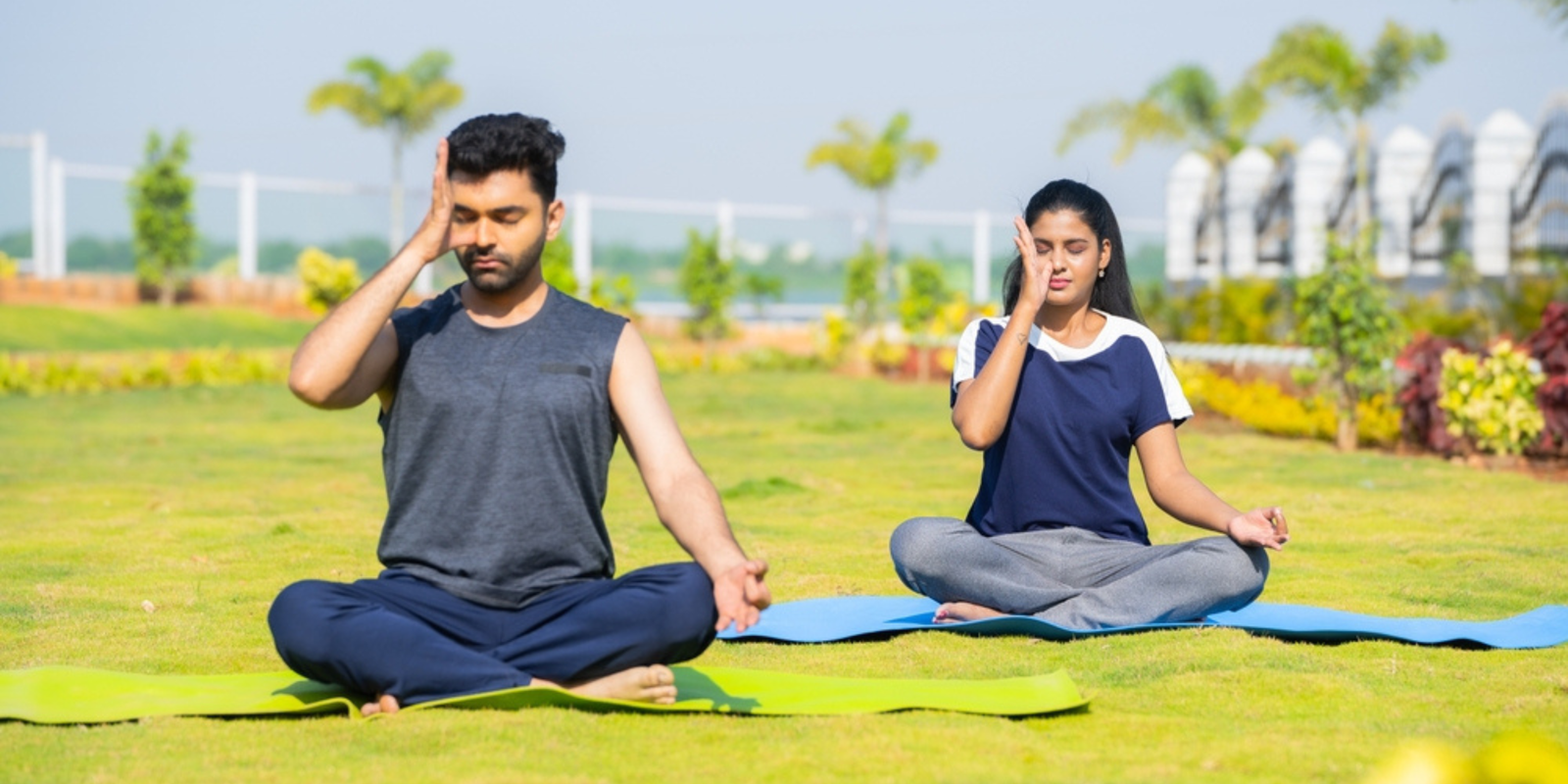Introduction
”Ayurvedic Morning Rituals” As the first golden rays of the sun peeked through her bedroom window, Emma’s eyes fluttered open. She had been doing the Ayurvedic morning rituals for months now. This new routine had become a cherished part of her daily life. Stepping out of bed, she felt grounded. She was already attuned to the rhythms of the natural world around her.
Ayurveda is the ancient Indian system of holistic healthcare. It offers a treasure trove of wisdom. It is for creating balance, health, and well-being. At the heart of this timeless tradition lies the practice of Dinacharya. It’s the daily rituals and routines that align us with the natural rhythms of the day and the seasons. As Emma began her morning, she knew Ayurvedic routines could nourish her mind, body, and spirit. They would lead her to a day of mindful living.
The Essence of Ayurvedic Daily Routines
Dinacharya is an Ayurvedic practice of daily rituals and routines. The idea of aligning our lives with the natural rhythms of the day and the seasons roots itself. These time-honored practices help us keep balance. They help with physical and mental health. They also help us connect with ourselves and the world.
Aligning with Nature’s Rhythms
Ayurveda’s view of daily routines sees a deep link. It links the human body to the natural world. By timing our activities with the ebb and flow of the day, we can tap into the core of ayurvedic daily routines. We can also cultivate a deep sense of aligning with nature’s rhythms.
Cultivating Mind-Body Balance
At the heart of Dinacharya lies the principle of mind-body balance. The Ayurvedic daily rituals and routines aim to harmonize our bodies and minds. They let us live in a state of Ayurveda dinacharya. It’s a harmony with nature’s rhythms.
Waking Up Early: Embrace the Dawn

In Ayurveda, waking up early is key. One of the most important and nourishing morning practices is observing. People know this ritual as Brahma Muhurta. It aligns us with the day’s natural rhythms and lets us harness the powerful energy of the dawn.
By getting up early, we can connect more with our circadian rhythms and those of the natural world. This alignment can have big effects on our health. It sets the stage for a day of energy, focus, and purpose.
Waking up early and doing Ayurvedic morning routines can also help us manage our energy. They help us tap into the quiet, reflective nature of the hours before dawn. This practice can bring inner calm, clarity, and mental sharpness. It helps us face the day’s challenges with fresh focus and strength.
It can transform you, whether you’re experienced or new to waking up early. This is an Ayurvedic ritual. It can also nourish you. Sync with nature’s cycles. Honor the sacred dawn. Doing so unlocks a wellspring of health, harmony, and growth.
You May Also Like:
Lifestyle Harmony with 5 Elements: Powerful Alchemy
Oral Hygiene: A Fresh Start

Ayurvedic morning rituals focus on oral hygiene. They see it as a crucial base for health and well-being. Two old practices are key to this holistic approach to Ayurvedic dental health. They are tongue scraping and oil pulling.
Tongue Scraping: An Ancient Ritual
In Ayurveda, tongue scraping is a vital part of the daily oral hygiene routine. This simple practice involves scraping the tongue’s surface. It uses a specialized tool, usually made of copper or stainless steel. Tongue scraping removes bacteria, food debris, and toxins. It freshens the breath, improves taste, and supports Ayurvedic oral care.
Oil Pulling: Nature’s Mouthwash
Oil pulling is another ancient Ayurvedic technique. You swish a tablespoon of organic, unrefined oil (like sesame or coconut oil) in your mouth. You do this for 10-20 minutes. Many people believe that this ancient practice draws out impurities and bacteria. It promotes oral hygiene and supports dental health. Oil pulling can reduce plaque, whiten teeth, and improve gum health. It provides a gentle, natural alternative to mouthwashes.
Abhyanga: Self-Massage for Radiant Health

Abhyanga is an Ayurvedic self-massage ritual. It is nourishing and offers many benefits for the body and mind. This ancient self-care art involves applying warm, healing Ayurvedic oils to the skin. This promotes relaxation and better circulation. It also brings a heightened sense of well-being.
The Art of Ayurvedic Massage
Abhyanga is an Ayurvedic self-massage. The concept is that the body is a sacred temple. It deserves regular care and attention. By massaging the body with oils, you can activate its natural healing mechanisms. This improves lymph flow and brings inner peace.
Choosing the Right Oils
The selection of Ayurvedic massage oils is a crucial aspect of the Abhyanga ritual. Your Ayurvedic constitution is unique. Depending on it and the effects you want, you can choose from many therapeutic oils. These include sesame, coconut, and Ashwagandha-infused oils. Each oil has its own properties and benefits. They let you tailor your self-massage to your needs.
Yoga and Exercise: Energize Your Day

In Ayurveda, yoga and exercise are vital. They help cultivate physical, mental, and spiritual well-being. As part of your morning routine, add mindful movement and breath work. They can energize your day and help you align with your body’s natural rhythms. Ayurvedic Morning Rituals
Asanas for Morning Practice
Ayurvedic yoga emphasizes the importance of selected asanas (postures). These tailor to fit the individual’s unique constitution and the time of day. These yoga practices are dynamic and in the morning. They can help you awaken your senses and improve flexibility. They also foster a deep sense of grounding and stability.
Pranayama: Unlocking Vital Energy
Pranayama is integral to Ayurveda. It means Ayurvedic breathing techniques. Regulate the breath. That lets you access the body’s vital life force, called prana. This can bring a deep sense of calm, focus, and rejuvenation.
It could be a gentle sun salutation or an invigorating Pranayama session. Adding Ayurvedic yoga and exercise to your morning routine can change how you start your day. It can help you build a deep sense of harmony within.
Balanced Nutrition: Fuel Your Body and Mind
Ayurvedic wisdom extends to nutrition. It offers a holistic approach to fueling the body and nourishing the mind. Aligning your morning meal with Ayurvedic dietary principles can help. It can support good digestion, balance your doshas, and boost well-being.
Ayurvedic Dietary Principles
At the core of Ayurvedic nutrition lies the idea of a balanced diet. It considers your unique body and the natural seasons. Ayurvedic principles say to choose whole, fresh foods. They should match your dosha and the current season.
Seasonal and Dosha-Based Eating
In Ayurveda, eating by the season is key. It keeps the body in balance. Tune into the energy of different foods. Align it with your dosha. Then, you can absorb nutrients better. This also promotes healthy digestion and balance.
You may be a Vata, Pitta, or Kapha type. Ayurvedic principles give a personalized framework for making a nourishing, balanced diet. It will energize your body and mind.
Mindful Meditation: Cultivating Inner Calm
Ayurvedic morning rituals place great emphasis on the practice of
Ayurvedic meditation
and
mindful meditation
, recognizing it as a powerful tool for cultivating inner calm, clarity, and connection. By dedicating a sacred space in your morning routine for
morning meditation
You can tap into the transforming power of this old practice. It will foster a deep sense of well-being.
Techniques for Morning Meditation
Ayurvedic
meditation techniques
offer a variety of approaches to help you connect with your inner self and find a sense of stillness. From the simplicity of breath awareness to more guided
Ayurvedic meditation
practices, the key is to find a method that resonates with you and make it a consistent part of your daily routine.
The Benefits of a Quiet Mind
The
benefits of meditation
are well-documented, both in the Ayurvedic tradition and modern scientific research. Regular
mindful meditation
It can reduce stress. It improves focus and concentration. It also helps with emotional regulation. And it fosters a deep sense of inner peace and clarity. This practice helps you have a quiet mind. It can bring you deep rest and align you with nature’s rhythms.
Ayurvedic Morning Rituals
We have explored the Ayurvedic morning rituals. Dinacharya calls them. They offer a full approach to nurturing holistic well-being. Ayurveda’s ancient wisdom roots these time-honored practices. They design them to align us with the day’s natural rhythms. They also cultivate a deep sense of balance and harmony.
Embracing the Timeless Wisdom
We can unlock the power of Ayurvedic daily routines by adding their morning rituals to our lives. These rituals are part of the timeless practice of dinacharya. Ayurvedic wisdom grounds these practices. They offer a holistic way to nurture our physical, mental, and spiritual well-being. They empower us to embrace a more mindful and fulfilling lifestyle.
Quality Sleep: Rejuvenate for a New Day

In the Ayurvedic tradition, one cannot overstate the importance of quality sleep. Restful sleep is key to holistic well-being. It lets the body and mind restore, recharge, and prepare for the day.
Sleep Hygiene in Ayurveda
Ayurveda emphasizes the importance of sleep hygiene. This means the practices and factors that support deep, restorative slumber. Align your sleep-wake cycle with the day’s natural rhythms. This will optimize Ayurvedic sleep quality. You will wake feeling refreshed and rejuvenated.
Creating a Restful Environment
Ayurveda also sees that the Ayurvedic sleep environment can impact your rest. Create a serene, cozy, and supportive space for sleep. This will make the ideal conditions for deep, restorative sleep. It will let your body and mind recharge and rejuvenate.
Ayurvedic Daily Routines and the Seasons
Ayurveda focuses on daily rituals. The link between the human body and the natural world forms the basis for these. This is an ancient wisdom tradition. Our well-being is linked to the rhythms and cycles of the seasons.
Adapting to Nature’s Cycles
Ayurveda and the seasons say we should align our lives with the earth’s cycles. Adapting to nature’s cycles can help us support our bodies, minds, and emotions. It also helps us keep balance through the changing seasons.
Seasonal Self-Care Practices
Ayurvedic practitioners design self-care practices for each season. They help us adapt to the changing environment and energies. We can adjust our diet and exercise. We can also add specific self-care rituals. These practices help us stay grounded, energized, and resilient all year.
Incorporating Ayurvedic Daily Routines into Modern Life
Adding Ayurvedic daily routines to modern life can change lives. They contain timeless wisdom. It can empower you. Contemporary life is fast-paced. It may present challenges. But, there are practical strategies and mindset shifts. They can help you add these Ayurvedic self-care practices to your daily life.
Practical Tips for Busy Schedules
Today’s Ayurvedic routines are for modern life. It’s easy to feel overwhelmed by work, family, and social duties. Yet, with a little creativity and commitment, you can find ways. You can add Ayurvedic daily routines to your busy schedule. First, find the key Ayurvedic practices that resonate with you. Then, find simple ways to add them to your daily routine.
Making Self-Care a Priority
One key to adding Ayurvedic routines to busy schedules is to focus on self-care. This may need a mindset shift. Our fast-paced culture often values productivity and external demands over our own well-being. Value Ayurvedic self-care. You can choose to make time for these healthy practices. This will improve your health and resilience.
Warm Water with Lemon: A Simple Morning Tonic

One of the simplest Ayurvedic morning rituals is also one of the most impactful. It is drinking a warm glass of water with lemon. This modest elixir offers many benefits. It’s a great way to start your day and support your well-being.
The Benefits of Hydration
Staying hydrated is crucial for good body function. A warm glass of water with lemon is an excellent way to start your day. Hydration helps with many things. These include healthy digestion, immune function, mood regulation, and cognitive performance.
Ayurvedic Properties of Lemon
Ayurveda reveres lemon. Its cleansing and nourishing properties make it valuable. Lemons are full of vitamin C. It’s a strong antioxidant. It helps neutralize free radicals and aid the body’s detox. Also, lemon juice is acidic. It can help balance the body’s pH levels. This promotes Ayurvedic morning tonic well-being.
The Importance of Routine
Ayurvedic daily rituals center around the profound idea that routine is crucial. Ayurveda views the consistent practice of Dinacharya as a powerful tool. It helps cultivate balance, vitality, and a deep sense of well-being.
Cultivating Discipline and Consistency
Having a disciplined Ayurvedic daily routine is foundational. It is a key part of this holistic approach to health. Commit to a regular sequence of practices. These include waking up early, tongue scraping, and meditation. They can give you a sense of structure and stability. This can impact your well-being.
The Power of Habit Formation
Ayurveda emphasizes habit formation. This is because it sees discipline as key to long-term change. By doing these daily rituals , you can integrate them into your life. They will become a natural and easy part of your day. Forming habits this way can lead to lasting improvements. They affect your physical, mental, and spiritual well-being.
The Routines and Rituals of Dinacharya Serve Several Essential Purposes
People know the Ayurvedic daily routines and rituals as Dinacharya. They serve several vital purposes. They promote holistic well-being. These time-honored practices are at their heart. They recognize the link between the human body and nature. The routines of Dinacharya help us by aligning our daily lives with the rhythms and cycles of nature. They help us maintain balance, grow vitality, and foster deep well-being.
These Ayurvedic daily routines nourish the body. They also calm the mind and support detoxification. Dinacharya involves practices like tongue scraping, oil pulling, and Abhyanga. They cleanse the body, boost circulation, and promote relaxation and rejuvenation. We can add these Ayurvedic daily rituals to our morning routine. They will give us a strong base for good health and a harmonious connection with the world.
Also, regular Dinacharya offers many benefits. It improves sleep and digestion. It also boosts focus and emotional well-being. These Ayurvedic practices cultivate discipline and routine. They empower us to take an active role in our health. This leads to a more balanced, vibrant, and fulfilling life.









